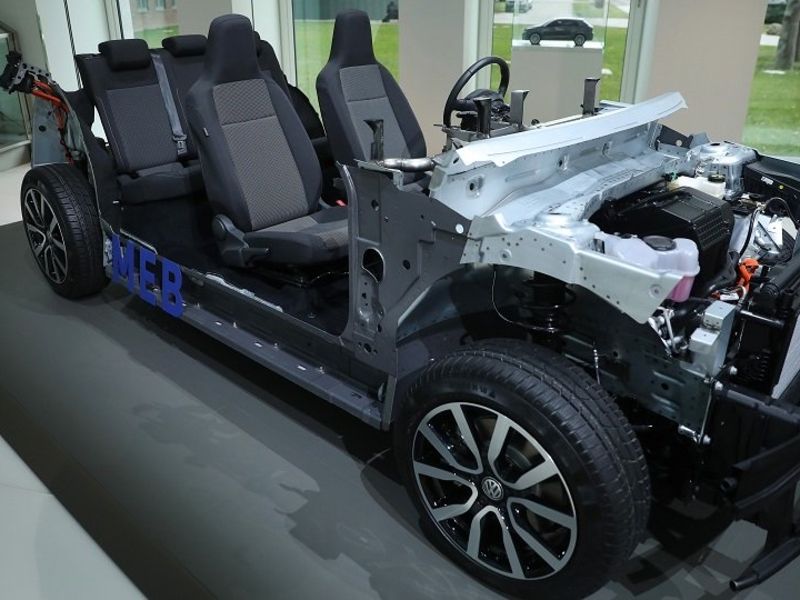
FRANKFURT — Volkswagen Group is reconsidering which of its brands will develop a new family of small electric vehicles after its Spanish unit, Seat, lost the project.
VW Group CEO Herbert Diess said in March 2019 that Seat would lead development of full-electric city cars that will cost less than 20,000 euros. Diess said they would replace the full-electric versions of the VW Up, Skoda Citigo and Seat Mii and would be “a great step toward an even more affordable electric mobility.”
One source close to Seat said the VW brand will now head the project. Executives at VW Group’s headquarters in Wolfsburg believe that the decision will be “more efficient in terms of synergies,” the source said.
The small EVs will be based on a heavily modified version of VW Group’s MEB electric-vehicle architecture shortened to less than 4000 mm (157.5 inches), or roughly the length of the VW Polo.
MEB underpins the VW ID3, a compact hatchback due to launch this summer in Europe as the first of the automaker’s new generation of battery-powered EVs for the mass market.
Adapting the architecture for a family of small city cars in a cost-efficient way is proving to be challenging because of the need to strip out a third of the costs compared with the ID3. Engineers have looked at everything from smaller electric motors to different battery module configurations to give the small EVs the high standard of crash protection that will be expected by customers.
Seat’s selection to engineer and take on responsibility for the MEB Entry family was a coup for the once struggling Spanish automaker. It demonstrated VW Group’s confidence in CEO Luca de Meo who delivered profits after his 2015 appointment as head of the brand. De Meo has since quit VW Group and will take up the post of Renault CEO on July 1.
Seat was due to collaborate on the project with JAC Automobile Group, VW Group’s partner in China for EVs. Seat has now postponed plans to re-enter the Chinese market.
JAC Volkswagen was supposed to introduce the Spanish brand in China by 2021 and build battery-powered Seats. The China’s EV market has cooled down after the government cut subsidies last July. The outlook for this year is bleak following the coronavirus.
Seat, in a statement to Automotive News Europe, said the decision to pull the brand from developing small EVs reflected the VW Group’s decision to revive the “global group’s strategy regarding brands, production systems and markets.”
Seat’s loss of the MEB Entry project “is connected to the decision by Seat not to go to China. It would not have made sense then for them to continue to cooperate with JAC,” a VW Group spokesman said.
He said a decision over which brand would assume responsibility for the MEB Entry platform has not been taken.